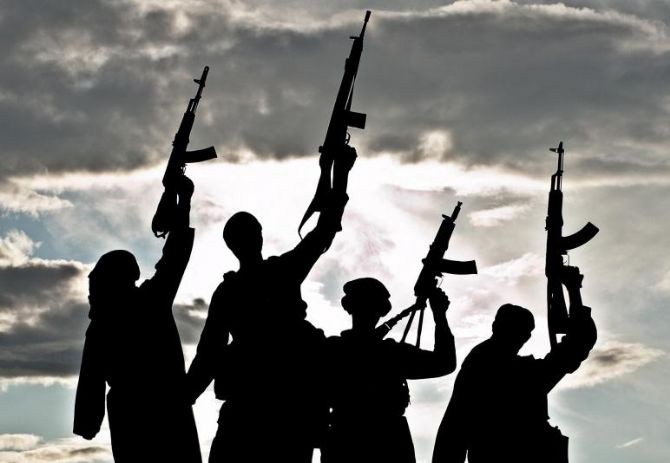Ghana’s exposure to violent extremism: Report finds chieftaincy disputes, others amplify risks
Ghana’s exposure to violent extremism: Report finds chieftaincy disputes, others amplify risks

A report by the West African Center for Counter-Extremism has stated that Ghana’s risk of extremist attacks or recruitments is amplified by the unending Bawku chieftaincy conflict, ethnic tensions in Northern Ghana, and unresolved challenges with Western Togoland separatists in the Eastern border regions.
The report noted that Ghana had over 352 unresolved chieftaincy conflicts and as neighboring countries like Burkina Faso, Togo, Ivory Coast and others were already grappling with terrorist violence, the country stands at high risk.
“The protracted chieftaincy and ethnic conflicts in the border regions constitute a direct threat and opportunity for extremist exploitation,” the report said.
In addition, bad and unmotorable roads, lack of drinking water, inadequate healthcare and educational facilities, high youth unemployment, and climate change effects have been identified as factors that make border regions of Northern Ghana vulnerable and possible target for extremist exploitation.
“With all its direct neighbors under attacks, Ghana has now been encircled by the threat. These developments are dangerous for Ghana. Ghana’s proximity to these countries (Burkina Faso to the North, Benin, and Togo to the East and Ivory Coast to the West) exposes the country to extremist recruitment or attacks or both,” it stated.
Although the report acknowledged some of the government’s initiatives at countering the problem, it highlights that what is perhaps required is speed, because extremists do not wait.
“But the overall effectiveness of Ghana’s response will be determined by the State’s willingness to recognise that the battle against terrorism and the drivers that underpin it cannot be won on the battlefield alone. It will be won in the local community in dealing with the drivers of radicalization and building resilience against the threat. It will be won by effectively addressing grievances, mobilizing local community support and goodwill to build the social and economic infrastructure that is required to build resilience against extremism,” it indicated.


